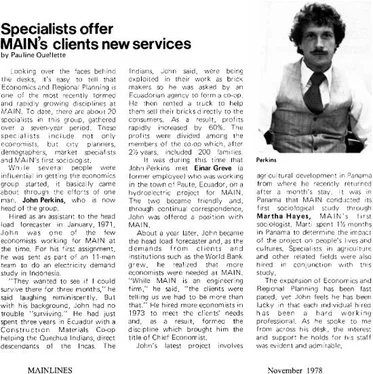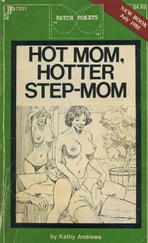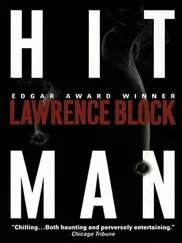John Perkins - Confessions of an Economic Hit Man
Здесь есть возможность читать онлайн «John Perkins - Confessions of an Economic Hit Man» весь текст электронной книги совершенно бесплатно (целиком полную версию без сокращений). В некоторых случаях можно слушать аудио, скачать через торрент в формате fb2 и присутствует краткое содержание. Жанр: economics, на английском языке. Описание произведения, (предисловие) а так же отзывы посетителей доступны на портале библиотеки ЛибКат.
- Название:Confessions of an Economic Hit Man
- Автор:
- Жанр:
- Год:неизвестен
- ISBN:нет данных
- Рейтинг книги:4 / 5. Голосов: 1
-
Избранное:Добавить в избранное
- Отзывы:
-
Ваша оценка:
- 80
- 1
- 2
- 3
- 4
- 5
Confessions of an Economic Hit Man: краткое содержание, описание и аннотация
Предлагаем к чтению аннотацию, описание, краткое содержание или предисловие (зависит от того, что написал сам автор книги «Confessions of an Economic Hit Man»). Если вы не нашли необходимую информацию о книге — напишите в комментариях, мы постараемся отыскать её.
Confessions of an Economic Hit Man — читать онлайн бесплатно полную книгу (весь текст) целиком
Ниже представлен текст книги, разбитый по страницам. Система сохранения места последней прочитанной страницы, позволяет с удобством читать онлайн бесплатно книгу «Confessions of an Economic Hit Man», без необходимости каждый раз заново искать на чём Вы остановились. Поставьте закладку, и сможете в любой момент перейти на страницу, на которой закончили чтение.
Интервал:
Закладка:
The decision to sit in on that seminar was one of those coincidences that seemed insignificant at the time but turned out to have life-changing implications. The recruiter described several places in the world that especially needed volunteers. One of these was the Amazon rain forest where, he pointed out, indigenous people lived very much as natives of North America had until the arrival of Europeans.
I had always dreamed of living like the Abnakis who inhabited New Hampshire when my ancestors first settled there. I knew I had Abnaki blood in my veins, and I wanted to learn the type of forest lore they understood so well. I approached the recruiter after his talk and asked about the possibility of being assigned to the Amazon. He assured me there was a great need for volunteers in that region and that my chances would be excellent. I called Uncle Frank.
To my surprise, Uncle Frank encouraged me to consider the Peace Corps. He confided that after the fall of Hanoi — which in those days was deemed a certainty by men in his position — the Amazon would become a hot spot.
“Loaded with oil,” he said. “We’ll need good agents there — people who understand the natives.” He assured me that the Peace Corps would be an excellent training ground, and he urged me to become proficient in Spanish as well as in local indigenous dialects. “You might,” he chuckled, “end up working for a private company instead of the government.”
I did not understand what he meant by that at the time. I was being upgraded from spy to EHM, although I had never heard the term and would not for a few more years. I had no idea that there were hundreds of men and women scattered around the world, working for consulting firms and other private companies, people who never received a penny of salary from any government agency and yet were serving the interests of empire. Nor could I have guessed that a new type, with more euphemistic titles, would number in the thousands by the end of the millennium, and that I would play a significant role in shaping this growing army.
Ann and I applied to the Peace Corps and requested an assignment in the Amazon. When our acceptance notification arrived, my first reaction was one of extreme disappointment. The letter stated that we would be sent to Ecuador.
Oh no, I thought. I requested the Amazon, not Africa.
I went to an atlas and looked up Ecuador. I was dismayed when I could not find it anywhere on the African continent. In the index, though, I discovered that it is indeed located in Latin America, and I saw on the map that the river systems flowing off its Andean glaciers form the headwaters to the mighty Amazon. Further reading assured me that Ecuador’s jungles were some of the world’s most diverse and formidable, and that the indigenous people still lived much as they had for millennia. We accepted.
Ann and I completed Peace Corps training in Southern California and headed for Ecuador in September 1968. We lived in the Amazon with the Shuar whose lifestyle did indeed resemble that of precolonial North American natives; we also worked in the Andes with descendants of the Incas. It was a side of the world I never dreamed still existed. Until then, the only Latin Americans I had met were the wealthy preppies at the school where my father taught. I found myself sympathizing with these indigenous people who subsisted on hunting and farming. I felt an odd sort of kinship with them. Somehow, they reminded me of the townies I had left behind.
One day a man in a business suit, Einar Greve, landed at the airstrip in our community. He was a vice president at Chas. T. Main, Inc. (MAIN), an international consulting firm that kept a very low profile and that was in charge of studies to determine whether the World Bank should lend Ecuador and its neighboring countries billions of dollars to build hydroelectric dams and other infrastructure projects. Einar also was a colonel in the U.S. Army Reserve.
He started talking with me about the benefits of working for a company like MAIN. When I mentioned that I had been accepted by the NSA before joining the Peace Corps, and that I was considering going back to them, he informed me that he sometimes acted as an NSA liaison; he gave me a look that made me suspect that part of his assignment was to evaluate my capabilities. I now believe that he was updating my profile, and especially sizing up my abilities to survive in environments most North Americans would find hostile.
We spent a couple of days together in Ecuador, and afterward communicated by mail. He asked me to send him reports assessing Ecuador’s economic prospects. I had a small portable typewriter, loved to write, and was quite happy to comply with this request. Over a period of about a year, I sent Einar at least fifteen long letters. In these letters, I speculated on Ecuador’s economic and political future, and I appraised the growing frustration among the indigenous communities as they struggled to confront oil companies, international development agencies, and other attempts to draw them into the modern world.
When my Peace Corps tour was over, Einar invited me to a job interview at MAIN headquarters in Boston. During our private meeting, he emphasized that MAIN’s primary business was engineering but that his biggest client, the World Bank, recently had begun insisting that he keep economists on staff to produce the critical economic forecasts used to determine the feasibility and magnitude of engineering projects. He confided that he had previously hired three highly qualified economists with impeccable credentials — two with master’s degrees and one with a PhD. They had failed miserably.
“None of them,” Einar said, “can handle the idea of producing economic forecasts in countries where reliable statistics aren’t available.” He went on to tell me that, in addition, all of them had found it impossible to fulfill the terms of their contracts, which required them to travel to remote places in countries like Ecuador, Indonesia, Iran, and Egypt, to interview local leaders, and to provide personal assessments about the prospects for economic development in those regions. One had suffered a nervous breakdown in an isolated Panamanian village; he was escorted by Panamanian police to the airport and put on a plane back to the United States.
“The letters you sent me indicate that you don’t mind sticking your neck out, even when hard data isn’t available. And given your living conditions in Ecuador, I’m confident you can survive almost anywhere.” He told me that he already had fired one of those economists and was prepared to do the same with the other two, if I accepted the job.
So it was that in January 1971 I was offered a position as an economist with MAIN. I had turned twenty-six — the magical age when the draft board no longer wanted me. I consulted with Ann’s family; they encouraged me to take the job, and I assumed this reflected Uncle Frank’s attitude as well. I recalled him mentioning the possibility I would end up working for a private firm. Nothing was ever stated openly, but I had no doubt that my employment at MAIN was a consequence of the arrangements Uncle Frank had made three years earlier, in addition to my experiences in Ecuador and my willingness to write about that country’s economic and political situation.
My head reeled for several weeks, and I had a very swollen ego. I had earned only a bachelor’s degree from BU, which did not seem to warrant a position as an economist with such a lofty consulting company. I knew that many of my BU classmates who had been rejected by the draft and had gone on to earn MBAs and other graduate degrees would be overcome with jealousy. I visualized myself as a dashing secret agent, heading off to exotic lands, lounging beside hotel swimming pools, surrounded by gorgeous bikini-clad women, martini in hand.
Читать дальшеИнтервал:
Закладка:
Похожие книги на «Confessions of an Economic Hit Man»
Представляем Вашему вниманию похожие книги на «Confessions of an Economic Hit Man» списком для выбора. Мы отобрали схожую по названию и смыслу литературу в надежде предоставить читателям больше вариантов отыскать новые, интересные, ещё непрочитанные произведения.
Обсуждение, отзывы о книге «Confessions of an Economic Hit Man» и просто собственные мнения читателей. Оставьте ваши комментарии, напишите, что Вы думаете о произведении, его смысле или главных героях. Укажите что конкретно понравилось, а что нет, и почему Вы так считаете.












